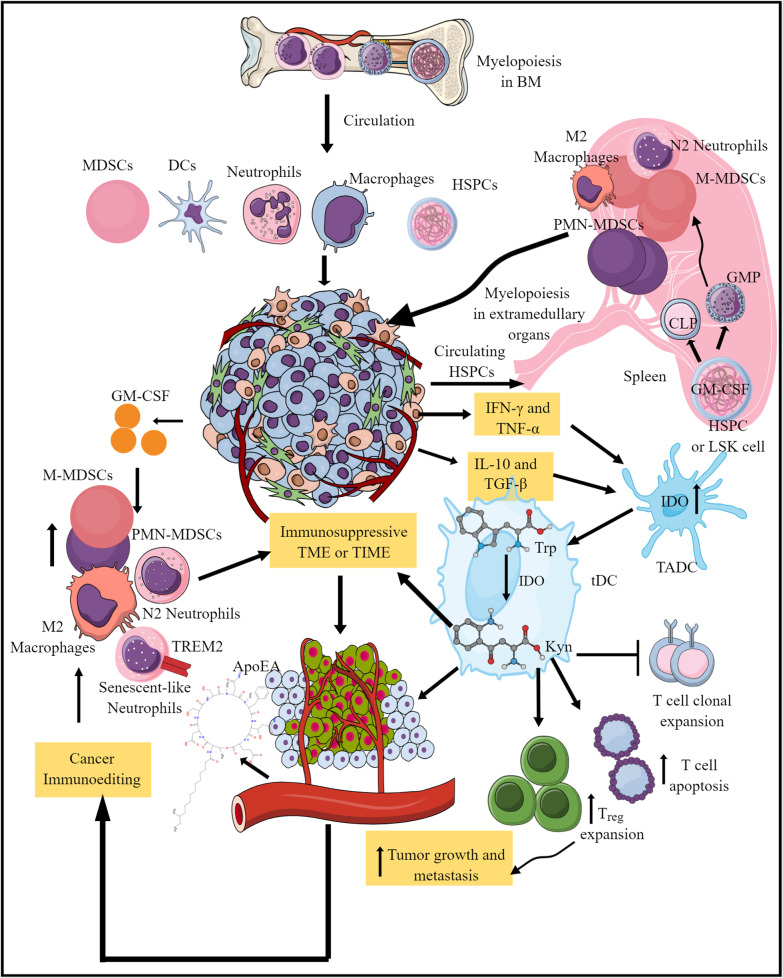Fig. 2.
Aberrant Myelopoiesis during cancer and its impact on TIME MICs. Myelopoiesis takes place in the bone marrow under normal condition. However, cancer alters this process by inducing myelopoiesis in extramedullary organs, including spleen. During extramedullary myelopoiesis, circulating HSPCs or LSK cell move to spleen under the influence of immunosuppressive TIME. These LSK cells overexpress GM-CSF and differentiate into CLPs and GMPs. These GMPs differentiate into tumor-supportive MICs and move to the TME. GM-CSF and CCR2/CCL2 axis critically regulates the HSPC migration to the spleen for extramedullary myelopoiesis. Furthermore, GM-CSF release or increase in TIME increases immunosuppressive MICs population, including M2 macrophages, MDSCs, and N2 neutrophils that can be explained by extramedullary myelopoiesis. Tumors also exhibit cancer immunoediting to support immunosuppressive TIME. Cancer cells cleave tryptophan (Trp) to Kyn via IDO. Kyn exerts immunosuppressive activity inducing the generation of tolerogenic DCs, Tregs increase, and antitumor T cell apoptosis. Furthermore, pro-inflammatory (IFN-γ and TNF-α) and anti-inflammatory cytokines (IL-10, TGF-β) induce IDO overexpression in TADCs that reprograms them to tDCs secreting Kyn via increased Trp metabolism. This further increases Treg development, cytotoxic T cell apoptosis, and decreases T cell clonal expansion to support immunosuppressive TIME. Thus, TIME induces or follows different mechanisms to create an immunosuppressive environment for cancer growth, development, and metastasis. Details are mentioned in the text

